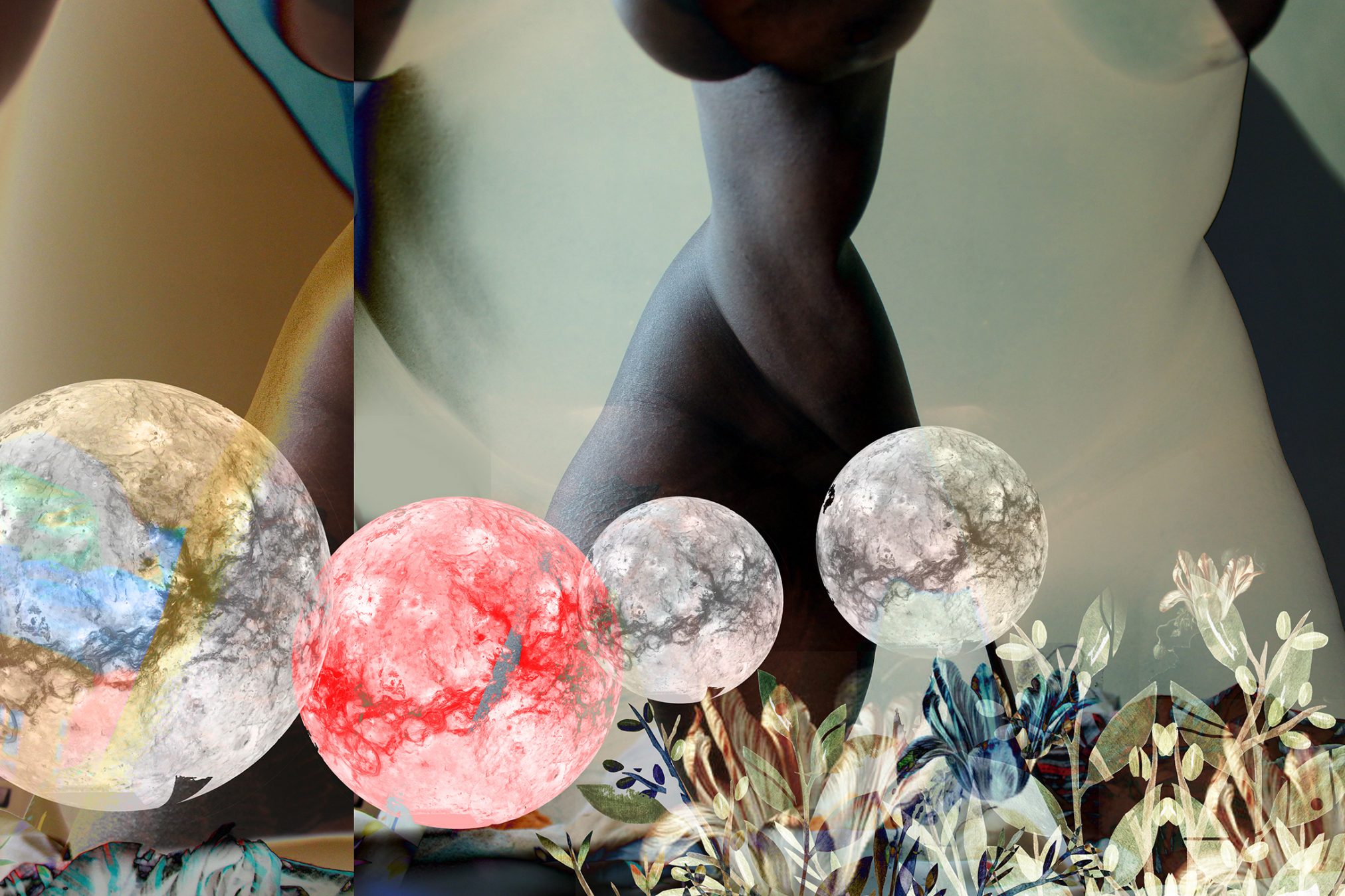Metamorphosis
Ngadi Smart is an artist and photographer who focuses on documenting cultures, subcultures and intimacy. Her work looks at how people self-identify and choose to present themselves in front of the lens. For this opportunity she has created a series of self-portraits as photo collages that are about self-identity and intimacy. Her photo collage series on the topic of loss and grief is deeply personal. They are about the challenges that remain post cancer treatment during lockdown, and revolve around themes of femininity, sexuality and body ownership as a black woman and cancer survivor.
Metamorphosis
by Ngadi Smart
Project Statement
“Metamorphosis” is a photo collage series on the topic of loss and grief. it is a very personal series to my life. Many experience or have experienced loss daily, and have found themselves faced with the reality and fleetingness of life, especially during this trying year. For me, one of my biggest experience with loss happened in my late twenties, when I was diagnosed with an oestrogen positive breast cancer. Cancer cells with type of positive receptors depend on oestrogen and related hormones, such as progesterone, to grow. My breast cancer diagnosis hit my family and I like a ton of bricks.
We were not prepared, but we were familiar with the disease, with my beloved Grandma having had the same disease before. Statistically, black women are more likely to be diagnosed with breast cancer at younger ages compared to White women: In women younger than 40-45 years old, the population-based incidence rates of breast cancer are higher for Black women compared to White women, and about 30% of all newly diagnosed Black breast cancer patients are younger than 50 years old, compared to only 20% of White patients. Black women are also more likely to be diagnosed with a more advanced-stage breast cancer compared to White women. Researchers speculate that there are genetic factors, as well as cultural factors and beliefs involved in these alarming numbers.
Just as cancer cells can grow and reproduce uncontrollably, invading your body and healthy cells, so can a cancer diagnosis also take over and affect your family members, your relationships and friendships detrimentally. It irrevocably changed my aspect on life. Mine also changed my relationship with my body: Oestrogen and progesterone influence many hormonal functions in women, such as sexual development, pregnancy, childbirth, and menopause.
Due the treatment and long term oestrogen blockers I have to take post active treatment to (hopefully) keep the cancer from coming back, my chances of natural fertilisation are greatly reduced, making me menopausal in my thirties.
This series of semi-nude self-portraits, juxtaposed in collage form with dated photos of early twentieth century African women, the silhouettes resembling African artefacts, are contrasted with stereotypical Western symbolisms of fertility such as the Venus of Willendorf, the Marian blue associated with the virgin Mary, and flowers: Flowers are heavily present in this series, as they are a symbolism of loss, but are also a representative of life and celebration.
Through my “Metamorphosis” series, I explore the death and rebirth I experienced through loss of my pre cancer life, and fertility. I am no longer the same person, but I celebrate all it took to get through this. I pull from and rejoice in the strength of ancestral ties such as my late Grandmother who succumbed to the same disease, and of those of the African women assimilated here with me, their stories never told from their own mouth. Their images, taken in the early 20th century, were catered to prevailing Eurocentric male fantasies about the ‘primitive’ sexuality of African women, “the Other”. With their photos collaged along with photos of my own body and face, I look to change that narrative on our bodies to one of ours, one where it is not policed by the white patriarchy.
In the end, loss has enabled me with strength I did not know I possessed, taught me the value of life, and completely restructured me, physically and internally. A metamorphosis.
*1 in 2 people will develop some form of cancer during their lifetime. For more information on cancer, visit https://www.cancerresearchuk.org, and https://breastcancernow.org/ for breast cancer research.
About the Artist
Ngadi Smart is a Sierra Leonean photographer based in London, who focuses on documenting cultures, subcultures and intimacy. Her work looks at how people self-identify and choose to present themselves in front of the lens. Recently, she has been interested in documenting Black sensuality and culture from an African point of view. She aims to show as many representations of African people, and what it means to be African as she can. Her work has been published on CNN, British Journal of Photography, Atmos Magazine, and Design Indaba.
www.ngadismart.com
Image Credit: Ngadi Smart



